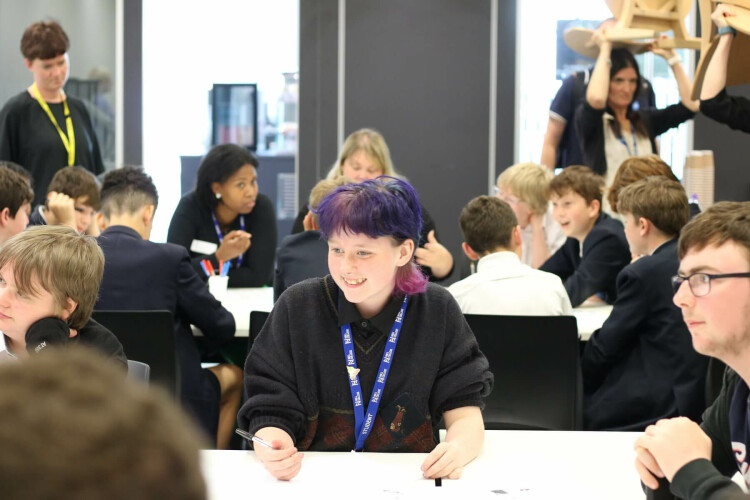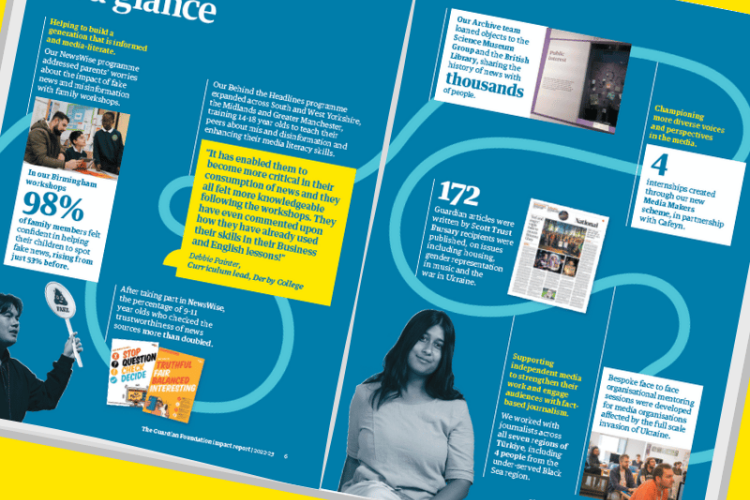After taking part in The Guardian Foundation's knowledge exchange week in 2024 Turkish journalist and psychologist Hatice Nur Derya wrote about her experience and how its helped her and her organisation report on the climate crisis.
Every year we hear, write, and even experience news about the warming of the world, and we often say, "This year is much hotter." As journalists, we write about rising temperatures, forest fires, polluted water supplies, and document the deteriorating state of the world. Maybe we should rethink what we write to change the course of the world.
But first, I would like to write about the change that The Guardian Foundation has brought to me and my institution. It was exciting for both me and our newspaper, Bursa Muhalif, to be among the journalists from Turkey who participated in The Guardian Foundation's Information Exchange Week in London. As the Bursa Muhalif Newspaper team, we have been trying to maintain rights-oriented and independent local journalism in Bursa, Turkey's 4th largest city, for 11 years. Journalism at The Guardian progresses quite slowly and with rich content compared to us trying to keep up with the rapidly changing agenda in Turkey. The news produced is prepared in a way that will create a long-term impact. However, the lifespan of news in Turkey is as short as the flutter of a bird's wings. It happened, it was written and it's done! However, for radical change, a perspective that reveals what may happen after the developments is needed. Especially for Türkiye, which feels the climate crisis deeply.
Bursa, the city I live in, was known for its fertile agricultural lands, clean water resources, Uludağ National Park and the title of 'green Bursa' until the last 50 years. However, with the increasing population, this city is losing its fertile agricultural lands. Bursa, which was described as a 'water city' 2000 years ago, now faces pollution of water resources due to the negative effects of industry. Wrong policies cause Bursa to lose its natural features that have existed for thousands of years. And we are increasingly feeling the impact of the climate crisis, our new global reality. Our clean water is decreasing, journalists in Bursa write about dam levels at least once every year and ask "Will we experience drought this summer?" they ask. "Which sunscreen is effective against increasing temperatures, which air conditioner is more economical?" News like these turn into daily weather news in newspaper headlines. So, with this news, can we stop global warming and protect the liveable environment?

